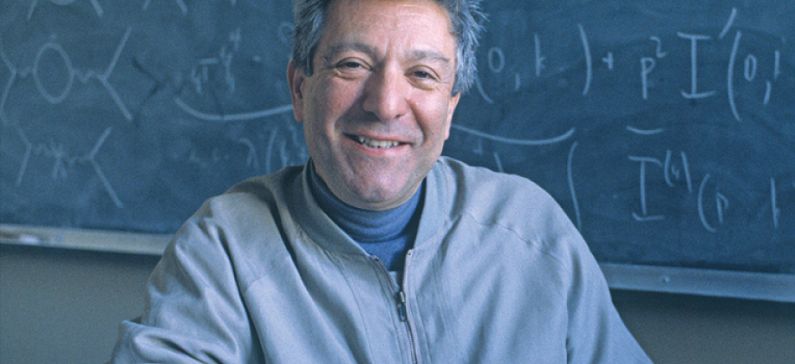
He first foresaw the existence of a fourth quark
«As far as Physics is concerned, I am far more interested in studying the elementary particles of the matter, than the more composite ones. The first moments in which the universe was created simply fascinate me. The only thing we truly know about the first «steps» of the universe, seconds after the «Big Bang», is that they are very similar to the conditions we have created today -experimenting – with the CERN accelerators in Geneva.»
These are the words Ioannis Iliopoulos, professor of Theoretical Physics in Paris, uses to describe the passion that enabled him to study the structure of the universe in such detail. It was the same passion -in combination with hard work- that gave him an admirable career in Theoretical Physics worldwide, achieving to contribute greatly in the study and thorough examination of elementary particles of the matter, known as «quarks».
Until the 60’s, scientists had only discovered three types of quarks. In 1969, Iliopoulos, working along with S.L. Glashow and L. Maiani, predicted -in theory- the existence of a fourth quark (until now we know that there are six types). Two years later, along with Cl. Bouchiat and Ph. Meyer, he managed to prove that a theory with four (or six) quarks is mathematically accurate. In 1974, this theory was verified, when numerous particles -whose substance had to do with the (new) quark- were discovered. The journey for a unified theory describing from scratch the interactions among elementary particles had just begun.
Ioannis Iliopoulos was born on the 18th of March 1940, in Kalamata, Greece. He graduated from the National Technical University of Athens (NTUA) in 1962 as a Mechanical-Electrical Engineer. He continued his studies in the field of Theoretical Physics in the University of Paris. As far as titles are concerned, it was in 1963 when he obtained the D.E.A, in 1965 the Doctorat 3e Cycle and in 1968 the Doctorat d” Etat. Between the years 1966 and 1968 he was a scholar at CERN, Geneva. From 1969 untill 1971 he was a Research Associate in Harvard University. In 1971 he returned in Paris and began working at CNRS (Centre Nationale de la Recherche Scientifique). He also held the director position of the Laboratory of Theoretical Physics of École Normale Supérieure between the years 1991-1995 and 1998-2002. Since 2006, the title «Professor Emeritus» has been offered to him by the same School (École Normale Supérieure).
It would be unfair to his career, if we didn’t make any reference at all to the most important scientific awards and prizes Iliopoulos won.
– Paul Langevin Prize, Société Française de Physique (1978)
– Grand Prize Ricard, Société Française de Physique (1984)
– J.J. Sakurai Prize, American Physical Society (1986)
– Medal from the Bodossaki Foundation (2002)
– Matteucci Medal, Accademia Nazionale delle Scienze (2006)
– Dirac Medal, ICTP (2007)
– Award from the Department of High Energy Physics, European Physical Society (2011)
– Member of the French Academy of Sciences
– Corresponding member of the Academy of Athens
– Professor Emeritus in the following Universities: University of Crete (1999), University of Ioannina (2002), University of Athens (2002) and University of Patras (2004).







